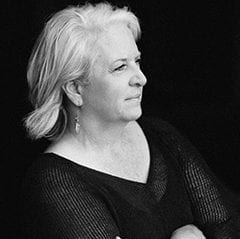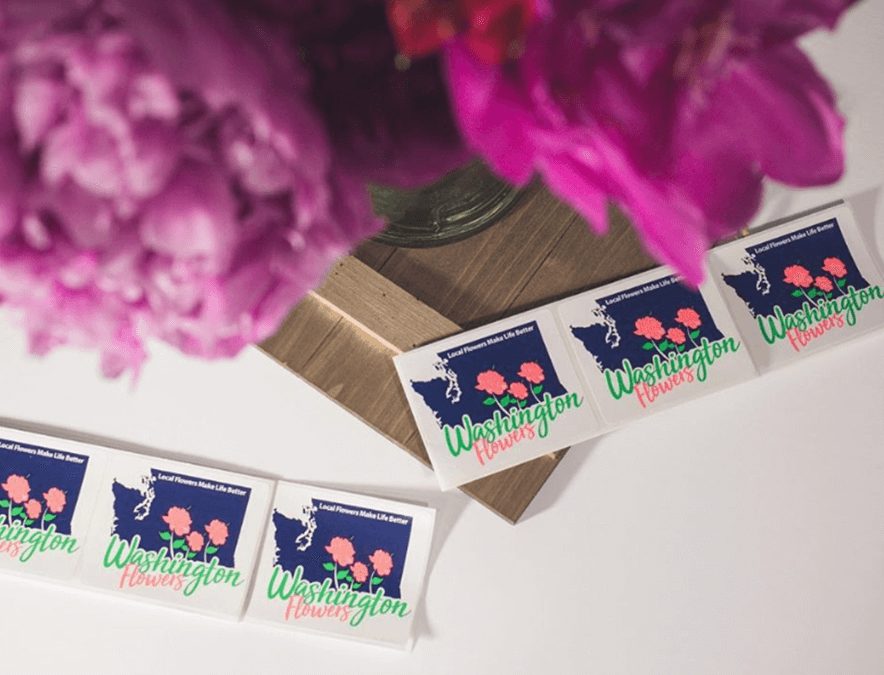For years, Washington State’s cut-flower production has been associated with tulips, popular for spring tourism and a by-product of commercial bulb production in Skagit Valley. Because of this, Washington has traditionally ranked among the top three U.S. states for floriculture production.
“When local floral agriculture partners with independent grocery stores, great things happen.”
In recent years, however, the floral landscape has changed. Yes, tulips are beloved and important to growers in the state. But a renaissance in cut-flower agriculture, combined with a groundswell of consumer interest in local and seasonal food – as well as floral choices – has led to diversification of floral farming and growth in the number of flower farms. According to the U.S. Department of Agriculture (USDA)’s “Floriculture Crops 2018 Summary,” the wholesale value of sales of Washington-grown cut flowers increased by almost 5.5 percent in three years, to $21.6 million in 2018, up from $20.5 million in 2015.
The Washington State Farm Bureau (WSFB) and the Washington State Department of Agriculture (WSDA) took notice, and in 2017, the two agencies collaborated on a three-year USDA Specialty Crop Block Grant Program (SCBGP) to serve floral agriculture and raise the profile of local cut flowers. “Washington is the third-largest producer of cut flowers [in the U.S.] and, yet, few consumers are aware of the diversity of what is grown here,” says Laura Ridenour, WSDA Regional Markets, one of the project coordinators.
Called “A Collaborative Effort to Advance Washington State Cut Flowers,” the project convened industry stakeholders as advisors, researched best marketing practices and consumer demand and awareness, designed an integrated marketing and outreach campaign to engage consumers, and created farmers’ market manager and farmer training curricula for business growth. Overall, the Washington Flowers Project aims to communicate to consumers and the floral industry how and why to chose local flowers.
The project research showed that most consumers purchase their flowers at convenient places, such as grocery stores, and the team launched a #Washington Flowers grocery pilot in June. The effort was designed to connect cut-flower growers to new markets and sell more local cut flowers, a priority identified in the project grower survey.
The grocery pilot brought together 65-plus independent Northwest Grocers-member stores and their floral distributor to facilitate business development and relationships with local flower farmers. It was announced to flower farms statewide via a live webinar in May, with WSDA and WSFB grant project managers and Jodi Allen, floral director for Charlie’s Produce, a major distributor of fruits and vegetables in the region.
The webinar helped inform small-scale and emerging flower farms, as well as more established growers who had not previously sold to the wholesale market, about best practices and how to package and label their flowers for distribution to grocery. The grocery pilot was projected to include 300 cases of farmers’ market-style mixed bouquets each week through the growing season.
In addition to already sourcing local tulips, peonies and other key cut-flower crops from growers in Washington state, the new local-flowers grocery pilot is designed to help emerging and smaller flower farms bring unique and seasonal mixed bouquets to Northwest Grocers’ member stores, including Thriftway, Red Apple Markets and IGA chains, Allen added.
“For some of these retailers, this gives them unique floral offerings,” she said. “Local flowers are completely different than imported flowers, or even U.S.-grown product from California. We can get items that ship better and hold up better when they’re not transported for a day or two, such as Dahlias.
Charlie’s worked with growers to set uniform pricing for their market bouquets, within the retail price range of $14.99 to $16.99. “We left the bouquet design as broad as possible; it’s basically ‘growers’ choice,’ so as many farms as possible can participate,” Allen added. “Uniform pricing, uniform case count and one SKU keeps things simple and helps farms be as successful as possible when they sell to Charlie’s.”
Northwest Grocers’ ads and point-of-purchase signage about local flower farms continue during the pilot program months (June through September) and include Washington Flowers bouquet labels and sleeves provided by the campaign.
According to Suzanne Carson of WSFB, the Washington Flowers Project has engaged consumers, retailers, growers and designers and generated newfound awareness of local flowers across the state, supported by a social media tag line #localflowersmakelifebetter. “It has been a joy to see the surge of interest as this boost of marketing, education and technical information supports the industry,” she said. “Cut floriculture in Washington is alive and thriving!”
DETAILS
• Washington Flowers Project: farmfreshwa.org/washington-flowers
- Instagram:@washington.flowers.project
- project Facebook: @WA.Flowers.Project
• Charlie’s Produce: charliesproduce.com
• Northwest Grocers: northwestgrocers.com


Debra Prinzing is a Seattle-based writer, speaker and leading advocate for American-grown flowers. She is the producer of slowflowers.com. Each Wednesday, approximately 2,500 listeners tune into her “Slow Flowers Podcast,” available for free download at her website, debraprinzing.com. In 2016, GWA: The Association for Garden Communicators inducted her into its Hall of Fame. She is the author of 10 books, including Slow Flowers and The 50 Mile Bouquet.







